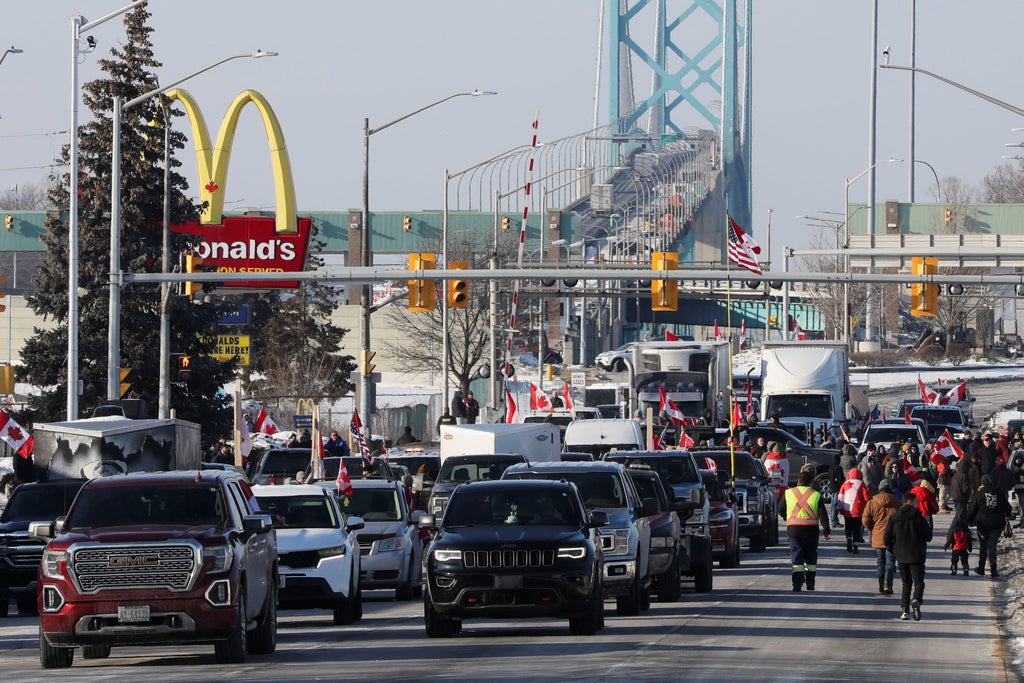
White House Press Secretary Jen Psaki said on Wednesday that the Ambassador Bridge blockade poses a risk to supply chains for the US auto industry because the border crossing is such a key conduit from Canada.
Ms Psaki was responding to a question regarding the anti-Covid mandate protests in Canada that have paralysed downtown Ottawa for almost two weeks and led to a near standstill at the crucial crossing between Windsor, Ontario, and Detroit, Michigan.
She also said the administration is tracking possible impacts on agricultural exports back across from Michigan into Canada and customs officials on both sides are working to alleviate the snarled flow of traffic.
Elizabeth Sherwood-Randall, the White House Homeland Security Advisor, convened a meeting on Wednesday to further discuss the issue.
Ms Psaki said they were in very close contact with the Custom and Border Protection (CBP) team, their Canadian counterparts, and Michigan Governor Gretchen Whitmer, as well as industry stakeholders.
The administration has taken a number of proactive steps with CBP working with Canada’s border enforcement officials to direct traffic through alternative routes such as the Blue Water Bridge.
Ms Psaki acknowledged that while there are lengthy delays, trucks and transports are slowly getting through.
All nine commercial lanes including a fast lane at the port were also opened to process diverted traffic — alternative processing is also being discussed with private sector stakeholders.
Ms Psaki added that another issue is passenger traffic of cross-border workers. They are being rerouted to the Detroit-Windsor tunnel that remains open and does not carry commercial vehicles.
She said President Joe Biden was focused on alleviating the impact of the protest.
The Ambassador Bridge carries approximately 25 per cent of trade between Canada and the US each year.
For Canada, a day’s worth of goods traded with the US via the bridge is equivalent in value to a month’s trade with Brazil, South Korea, or Australia.







